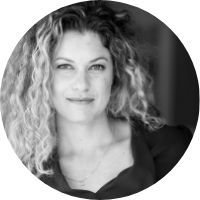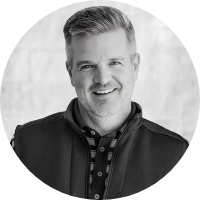Lemonade Insurance was born out of a challenge — could a legacy industry work faster, smarter, and with leaner team operations?
The company found a way through an organizational structure that empowers small groups to work independently and operate with deliberate efficiencies. The key to scaling “gracefully” while building slowly is Lemonade’s reliance on data and artificial intelligence.
In this podcast episode, we talk with Adina Eckstein, chief operating officer, and Sean Burgess, chief claims officer, to learn how this team is turning tech lemons into, well, Lemonade — across international datelines, no less.
As the champion of teamwork, Adobe is changing the world through digital experiences. Empower your team to do its best work through Adobe solutions — learn how in the webinars below.
Show notes
The Power of Teamwork is brought to you by Adobe and hosted by Garrett Schwartz.
Disclaimer: The views and opinions expressed by guests are their own and their appearance on this podcast does not imply an endorsement of them or any entity they represent.
Lemonade Insurance was born out of a challenge — could a legacy industry work faster, smarter, and with leaner team operations?
The company found a way through an organizational structure that empowers small groups to work independently and operate with deliberate efficiencies. The key to scaling “gracefully” while building slowly is Lemonade’s reliance on data and artificial intelligence.
In this podcast episode, we talk with Adina Eckstein, chief operating officer, and Sean Burgess, chief claims officer, to learn how this team is turning tech lemons into, well, Lemonade — across international datelines, no less.
As the champion of teamwork, Adobe is changing the world through digital experiences. Empower your team to do its best work through Adobe solutions — learn how in the webinars below.
Show notes
The Power of Teamwork is brought to you by Adobe and hosted by Garrett Schwartz.
Disclaimer: The views and opinions expressed by guests are their own and their appearance on this podcast does not imply an endorsement of them or any entity they represent.
The Power of Teamwork Season 1, Episode 4
“How Lean Teams and AI Grow Culture” — Lemonade Insurance
Host: Garrett Schwartz, Product Marketing Manager, Adobe
Guests: Adina Eckstein, Chief Operating Officer; Sean Burgess, Chief Claims Officer
Transcript
Garrett Schwartz
Could bots make teams more creative and collaborative? What if every team got to organize itself autonomously inside a larger company? That’s the heart of the business strategy at Lemonade Insurance.
Adina Eckstein
Lemonade is a digital tech company doing insurance that’s driven by AI and social impact.
Garrett Schwartz
The company is set up with an autonomous organizational structure where lots of smaller companies make up the larger company. And at Lemonade, AI bots are a core part of every team.
Adina Eckstein
We’re trying to make insurance, which is a necessity in our world, to actually be easy, fast, precise, and maybe even lovable.
Garrett Schwartz
In this episode, we get an inside view with two members of the Lemonade executive team who share how innovation in their tech is powering collaboration among their people.
Adina Eckstein
I’m Adina. I’m the COO at Lemonade. I oversee all the people, business operations, and customer-facing teams.
Sean Burgess
I’m Sean Burgess, the chief claims officer at Lemonade. The claims team is part of the overall customer ops team, which is sales and service and environment as well.
Garrett Schwartz
Team culture at Lemonade is all about moving fast from Adina’s perspective. Moving fast isn’t just about growing, it’s about scaling gracefully.
Adina Eckstein
Yeah, “scaling gracefully.” Scale is a much more graceful word than “grow” in any case, because growing — you know, a company is going to grow. If you want your business to grow, then the company is going to grow. But scaling is doing so more efficiently and productively than your business does, and that’s where you get the economies of scale.
And so scaling gracefully means getting all those efficiencies, but in such a way that we preserve our culture and what we like to call our mindset. As we grew from 100 to 1,000 and beyond. Each individual matters, each individual that works for us is connected and contributes to the business goals. We want to make sure that every person has both autonomy and accountability.
Those are some of the main principles of this column of scaling gracefully, and also how we’ve designed our organization. We wanted to minimize overhead dependencies and other slowdowns that you tend to see in large corporations, and increase our ability to move fast and be agile. So I think that’s how you scale gracefully.
Garrett Schwartz
At the heart of Lemonade’s structure is a model called the “autonomous organization.” Each team is a little company inside of the larger company.
Adina Eckstein
We organized into companies where each company is independent and gets to have its own resources and the ability to move faster. But that’s definitely something that grew from identifying a really clear, growing pain. People that joined Lemonade when we were 10 people joined because it was a startup and it’s super cool, and you get to sit down with the CEO and QA, right?
I don’t want those people to leave when Lemonade is 1,000, so I’m not going to switch them out for corporate animals. What I want is for those people to still feel like they work in a startup, even when we’re 1,500 and 3,000 and 10,000. How do you do that? You create these tiny autonomous units that are startups in their own right that make them feel important, impactful, belonging and unique.
But basically the companies are individual business units for each of our product lines. Each of the business units will have a GM or a company lead and they will have all the functions within that company necessary to run the business. They’ll have product and engineering resources, they’ll have customer support, they’ll have claims, they’ll have growth teams, and they’ll be able to prioritize within that company in order to meet each of their individual company goals, top line, bottom-line loss ratio, all the different metrics.
Together they contribute to Lemonade overall goals and they’re supported by what we call “platform teams” that are building infrastructure that is needed to support all the different companies. The smallest unit in a company will be a “squad,” so you’ll have multiple squads that form “tribes,” that form companies. Ideally, squads should be co-located. So like if you’re a product engineering squad, we think that that’s a highly collaborative nature of work.
So we do tend to have them in the same sites, but that changes according to the nature of the work. So in the other extreme where you have, for example, customer experience associates, where their work is individual, very, very trackable and can be done basically from anywhere, that co-location piece is less of a thing. We have the majority of our teams based in New York, the Arizona area, Tel Aviv, and Amsterdam.
Garrett Schwartz
What does autonomy mean at Lemonade, and how does that ladder up to your team’s success?
Adina Eckstein
What we try to do is we try to add the individual squad unit through companies and up to sort of Lemonade’s executive team to set objectives and key results for each of those business units, which we believe and analyze and stretch goals, but good for our business. And that could be related to growth, that could be related to efficiency, that could be related to risk management.
The autonomy comes with how are you going to achieve those key results? That is not something that you’ll get from top management. So if I’m the GM of the homeowners business, I know I need to grow my IFP by 10%. How I’m going to achieve that, I have all the resources at my disposal. I have a cross-functional team, I have one of every type of person that I need. I have my tech infrastructure, I have my resources. I can test out one initiative. It’s not yielding the results that I expect. I pivot.
That’s not a conversation that you have to have or an approval cycle or it doesn’t require a business review. The business is measuring you on just the key results. So that’s where autonomy comes from.
And in order to do that, you need your organizational design to enable autonomous collaborative working styles. But your tech also needs to be autonomous, so that if you make a change in one place, it doesn’t impact another place. You can really sort of push multiple builds into production and move rapidly in that sense.
Sean Burgess
The freedom in a framework is the way I and Adina think about it, is this freedom within the claims organization to go get it done. But there’s a framework. And it’s so it’s not chaos. We’re really laser focused together on the top line goals of the company in a short time.
Garrett Schwartz
It seems like there’s this theme of individual accountability as a team, but all pushing towards the same goal.
Sean Burgess
We set our key results, our operational results are OKRs, that we are very purposeful to make sure that everything is laddering up to those corporate goals. Once that is set within claims that autonomy that Adina talked about, we have the ability to say we’re going to take X percent of our claims that are almost half of our claims are instant today, if we want to get that to 60%, we set that as an internal target that matches up to the Lemonade corporate targets.
It feels weird, by the way, saying “Lemonade Corporate” because it’s really not as corporate as we think. There’s really this very purposeful approach to say we’re not trying to tell every team what to do down to the level of individual projects or items.
Here’s your overall goal, and run fast and get it.
Garrett Schwartz
Why is moving fast at a company like Lemonade so important?
Adina Eckstein
We believe that speed is in a superior customer experience, but it also is important in just like good corporate decision-making and the ability to pivot and make decisions. But also, more precision in pricing claims. Handling building an insurance company, which is completely on a digital substrate, means that our AI and machine learning capabilities are integrated into the core technology stack, which is every single vertical that you can imagine in insurance.
You’ve got the beautifully designed app and website where you can get insurance policies in minutes speaking to the speed by chatting to our bot “Maya.” But you can also chat without claims bot “Jim” to file a simple claim like a stolen laptop or more complex claims like an ongoing fire. But Jim, who’s the bot, he’ll handle 97% of all claims first before either paying them or closing the claim or handing it over to our human claims team for further processing.
That means even more of a third of our claims are settled within three seconds with zero human intervention. So just imagine that, you know, the technology provides such an increasing level of automation. Speed is really key.
Sean Burgess
It also comes with the type of employee that we need to bring on. As a maker, you really have to have the ability to deal with a lot of ambiguity to move fast. People say they want to move fast until you really start really fast.
Garrett Schwartz
How does the executive team collaborate to achieve the larger company’s goal?
Sean Burgess
It really is a hyper-collaborative environment, but it’s not a hyper meeting environment. It starts with those very clear objectives upfront. And I’ll tell you, Daniel, Shai, and Adina at the very highest level and they are very clear, meet regularly with the team and then we have a key set of core projects and things that we’re working on, whether that’s profitability or customer experience over the employee experience that we laser focus on and one of the things that is really powerful at Lemonade is measuring for results.
The fact that the data that we have here is really game-changing to be able to measure performance.
Garrett Schwartz
Is that your same experience too, Adina?
Adina Eckstein
It’s really important for me that everybody that works at Lemonade can listen to what Lemonade is trying to achieve, being authentic as leaders, being approachable, answering silly questions, and really trying to connect everybody’s individual work to the company goals and how they’re interlocked and interconnected. I think that that’s the key to sort of that sense of, you know, even though I’m sitting at home, I’m not alone.
Sean Burgess
Adina is known for her singing at the beginning of meetings sometimes as well. So you have a lot of fun here, too, right? That’s part of it.
Garrett Schwartz
So let’s get into AI. Can you explain to us again who “AI Jim” is and who “AI Cooper” is?
Sean Burgess
AI Cooper is my best friend. My wife’s wondering why I keep talking about Cooper, but it’s our internal bot that helps us run our business internally for us. Everything from reminders or the things that have to be done to potentially pushing 30 uploads a day into our system that could impact either the customer or the maker experience.
Adina Eckstein
Cooper actually helps us with our employee experience insight. Cooper tells managers about birthdays, when they’re going to get a new employee joining, and congratulates people. It reminds people if they’ve got a seminar coming up, it helps remind people to write performance reviews, and actually helps you collect feedback from people in order to deliver that performance review.
I really think that we’ve managed to encorporate it in a way that helps internal communication, helps internal collaboration in ways that we couldn’t do without Cooper. I think it definitely fosters collaboration. For example, if I’m an engineer and I’m working on a new feature, when the time comes to push a feature through environment staging into production, they’ll ask Cooper to do that.
When Cooper moves something between environments, it actually broadcasts to all the engineers that need to know that something has been moved between staging environments. Cooper actually facilitates communication if there is a distributed sense of the engineering team whilst it does its tasks.
Sean Burgess
And then “AI Jim” is the claim bot. So when you report a claim to Lemonade, which happens, you know, 98% of the time digitally, AI Jim is the first one to handle it. AI Jim takes that claim and reviews it, determines a couple of things right through our AI and technology. It determines if we can take care of this in a matter of seconds, which we do a third of the time.
Within three seconds they’re done, right? And then you can take another fraction of that and about another, you know, getting up to about 50% of those claims are handled electronically through artificial intelligence. What AI Jim allows is for the other 50% of claims to actually be handed off to the humans.
And to really make that connection and that difference when somebody has a bad day. So that’s AI Jim in the claim space. And we also have “AI Maya,” who sells and services a good portion of our policies as well.
Our AI models last year spit out at least potentially $100 million in claims that we went back and looked at and made sure that we’re paying. Before payment is made, we look at altered documents that come in and those types of things that our AI is constantly looking at, right? So as the claim continues, and whether it’s one that’s handled instantly — boom, we’re done, [but] if it handles throughout the lifecycle, then our own internal AI (we mentioned Cooper) makes our claims advocates more productive, more efficient, we believe. We call our claims — in the industry they’re called adjusters — we call them advocates.
The very first advocate I talked to when I came to Lemonade and I asked her if she had come from a carrier that had been around for 100 plus years. I said, “What makes you who you are? Why do you like working hard?” She said, “Sean, when I get my claim, it’s 70% completed for me already. That’s what people want to do, right?”
They don’t want to do the administrative things right.
Adina Eckstein
I’ll give you just an anecdote on the fraudulent claim side of things. One of the things that I loved the most is when we introduced a new suspicious claims model into production and we said, “Okay, there’s going to be a probability that this claim is fraudulent or suspicious.” We put it on a 0 to 10 scale and above a certain level of probability that this claim is fraudulent based on analyzing videos or pictures, or other types of details.
We said to the consumer on the front end, “You’ve been flagged for inspection, follow this process.” Just a flag for inspection. 50% of those claims were canceled.
That’s behavioral economics for you using AI. Not only did the claims not make their way to people, we actually gained on efficiencies and didn’t handle those claims.
Garrett Schwartz
Are there certain best practices or takeaways that you’ve learned from implementing AI?
Adina Eckstein
More analytical power brings more responsibility. AI enables you to sort of break apart like these monolithic groups of data, right? Instead of having these generic factors and assigning a probability to them, it turns into tiny, tiny little groups. So we believe it creates more fairness, not less.
Garrett Schwartz
So now, I guess the scary part that a lot of people are thinking is AI is going to be taking a ton of jobs. Right? But you say that AI makes being a human at Lemonade better, faster, more real. Is AI making collaborating easier? Is it improving teamwork?
Adina Eckstein
I definitely think so. I actually think that AI has a lot of qualities that are going to make human lives easier and more efficient. You think about it as like an exoskeleton for our team. We build Lemonade constantly as this autonomous organization, but that’s through striving to make sure that our humans, AI heads down on stuff that only humans can do.
We use AI also on people data to help us analyze attrition and retention on the employee side of things and engagement. And we have peer scores, so we definitely use AI to help us understand that.
We spoke about risk selection and fraud detection, marketing, prioritization, pricing. But with the coming age of generative AI, we expect it to do so much more. At Lemonade with our culture and architecture, it’s almost like we were waiting for this moment.
The transformative effects will be far reaching, and we’re very, very, very excited about what our near and longer term future holds with these new technologies.
Garrett Schwartz
I guess the last question that I’d like to ask is, a company can’t go public without at least one or two failures along the way. Are there any stories or learnings that you could share about pitfalls or failures and what the executive team learned from them?
Adina Eckstein
We actually do have a pretty strong culture of transparency and radical candor. Sean gave a few examples of that. We talk a lot through our mistakes and we learn from them. We also don’t play it safe. We talk about initiatives. We say find out what will kill you and take it back a notch.
Sean Burgess
I think that just speaks to the transparency of like we’re not a company here that’s going to play it safe. We’re going to do things the right way and we’re led by, you know, our core values. We’re going to make more mistakes, and we’re going to move faster to fix them and make them better.
Garrett Schwartz
To learn more about Lemonade’s team, check out lemonade.com. Follow Chief Operations Officer Adina Eckstein and Chief Claims Officer Sean Burgess on LinkedIn.













